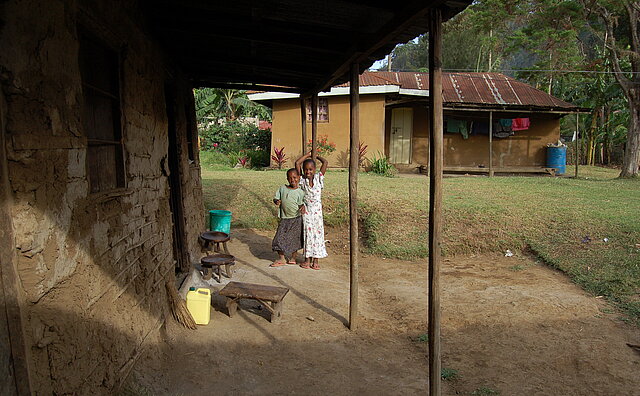With increasing life expectancy, the number of tumour diseases in Tanzania is also rising. Together with the Cancer Centre at Kilimanjaro Christian Medical Centre (KCMC) in Moshi in northern Tanzania, DIFÄM supports the supply of chemotherapeutic drugs to treat and cure people with malignant diseases.
However, many patients only seek medical help at an advanced and thus incurable stage. This is due to the widespread ignorance about cancer and its symptoms, the lack of preventive examinations and the long distances to specialised facilities. In addition, people have to pay for the costs themselves, which is a major hurdle.
Palliative medicine for a better quality of life
After the diagnosis of an incurable disease, it is the task of palliative medicine to accompany the patients and to keep their quality of life in their domestic environment as high as possible. Pain therapy plays a major role in this. But answers must also be found to social questions such as the children's school fees that can no longer be provided by terminally ill parents, the care of other family members in need of care or the preservation of land ownership.
In Tanzania, as elsewhere, the palliative team that cares for the terminally ill is multi-professional. Besides doctors and nurses, both social workers and pastoral staff are indispensable. In addition, volunteer hospice workers regularly visit the patients at home. They bring along basic medication and an open ear for patients and their families, assist with care and dressings and act as intermediaries between the family and medical professionals. The patients are very happy about the good home care. They all report that it is a great relief for them to no longer have to make the sometimes long, extremely strenuous and often expensive journeys to consult a doctor in case of deterioration or even just to pick up medication. The families providing care also feel supported and relieved by the project.
Qualification of medical staff
To ensure that palliative care can be provided also in future, DIFÄM supports not only the home visit programme itself, but also the qualification of medical staff in palliative care at the medical faculty of KCMC.
However, in the long term, palliative care cannot be supported by project funds alone. Therefore, the Lutheran Church in Tanzania - a local project partner of DIFÄM - strongly advocates politically that the care and treatment of terminally ill patients in their home environment will be reimbursed by the national health insurance in the future. Until then, those affected have to rely on donations.

